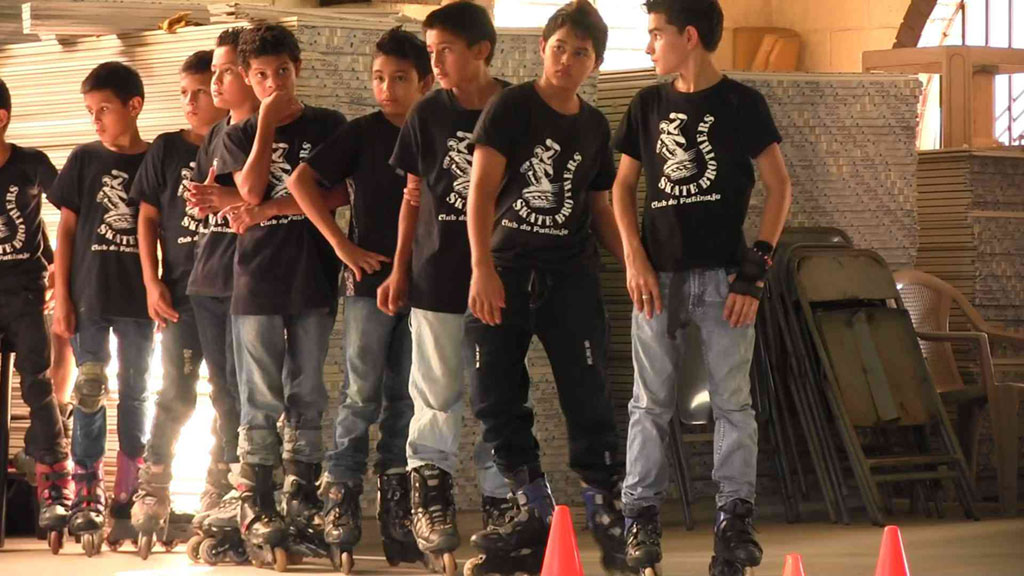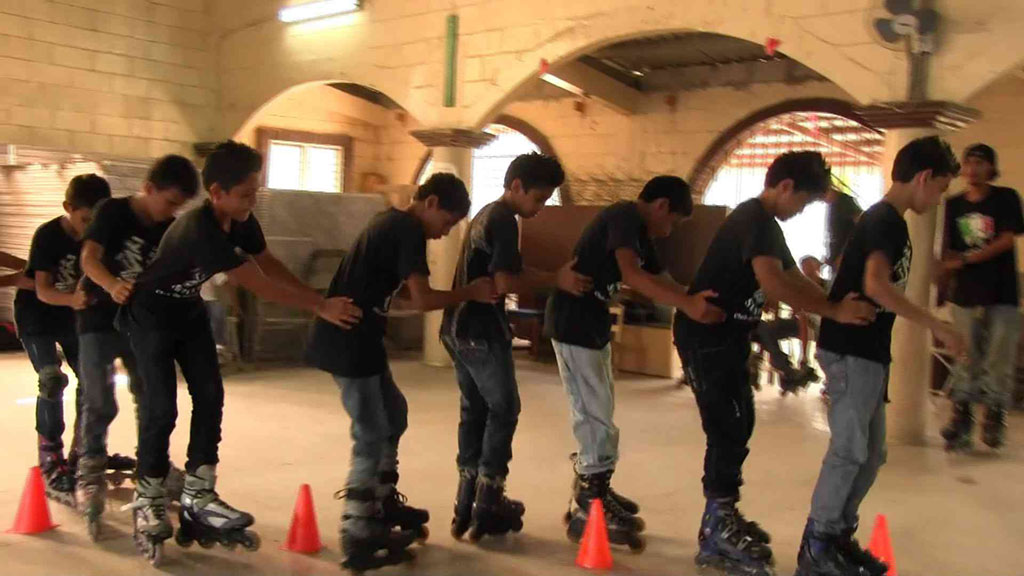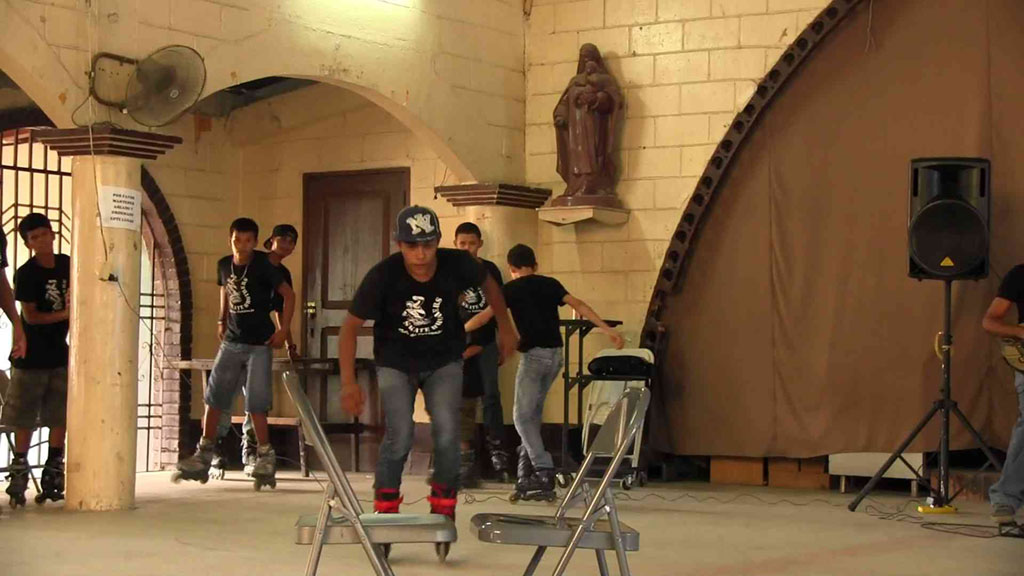Father Jairo Guzman is an expert at keeping other people’s secrets. As a priest, he has to be. But the kids he works with at the Cofradia Outreach Center near San Pedro Sula, Honduras have secrets of their own. Secrets like which gang they might be involved with, or even what their real names are.
They keep these secrets to protect themselves and those they care about. That’s why, when one of them was found killed this year at age 19, Pastor Guzman could only identify him by his nickname: La Mula.
What these young people cannot keep secret, though, is their need for belonging. It is one of the reasons they join gangs in the first place, along with the boredom, poverty and promises of money, manliness and honor.

So Father Guzman decided to create something else they could belong to. He joined, too. And even though he had never been on inline skates before, he pushed past the falls and the bruises and even the occasional jeering to become an active member of Skatebrothers, a club that now sends 35 boys and girls aged eight to 25 zipping around the neighborhood on rollerblades.
“My main objective is to eliminate violence,” says Guzman. “But you can’t just tell kids what to do and what not to do. You have to show them.”
Guzman runs the Skatebrothers club out of the outreach center, which has provided about 1,600 youths with a safe space since June 2011. Supported by Creative Associates International’s Alianza Joven Honduras project, the center offers English and computer classes, skills training in things like beauty and baking, and clubs that kids can join to play music or learn modern dance.
All of these activities get them off the unsafe streets and build their abilities. But they also boost their confidence, and help the community see them in a new light.
“Why work with these young people?” neighbors asked Guzman when he started the center. “They’re involved with drugs. They’ll steal things from the church.”

Ever since Guzman opened the center he’s been giving kids the tools to prove those neighbors wrong.
Beyond their academic courses he’s been teaching the youth about values, and how to provide love in their communities—places that are often rife with domestic abuse, violence and broken homes.
Guzman also involves the parents: he makes sure they’re involved in their children’s activities and are aware of their transgressions—and their progress.
When he started Skatebrothers, he gave members identification cards that confirmed their affiliation with the center, and instructed them to be respectful of property and to lay off the graffiti. He made it clear that he was watching them.
Now, community members accept the project, and even serve as volunteers to help run it.
They accept the boys and girls more, too.
Guzman says he would have continued the club with or without the neighbors’ approval. But it’s nice to see the impact Skatebrothers is having on the way these young people are increasingly seen as a positive part of the community.

These days, Guzman is asked less about why he’s trying to reach these kids, and more about where they’ve been. When the center ran out of funding, the priest couldn’t afford to buy any more skates, so Skatebrothers has been put on hold. A used pair of rollerblades costs around $30.
The music club is also on pause, after enthusiastic kids played the drums until the instrument was nothing more than a rim and an echo.
But Guzman is working to establish new partnerships and raise money for the center in an effort to get Skatebrothers and the other clubs up and running again.
After all, the center and clubs like Skatebrothers are about more than language classes and computer games. They provide acceptance, love and belonging for young people that might not get it anywhere else.
They give Guzman something too, he says: “hope for youth in Honduras.”
And as always, Father Guzman has faith.
